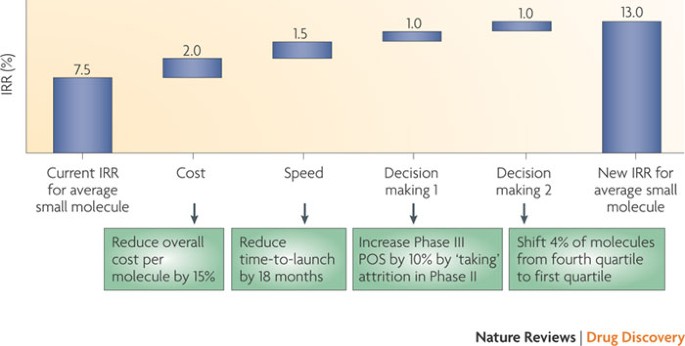- Select a language for the TTS:
- UK English Female
- UK English Male
- US English Female
- US English Male
- Australian Female
- Australian Male
- Language selected: (auto detect) - EN
Play all audios:
Access through your institution Buy or subscribe “Students should be studying because they love their discipline” and “Degree courses are there to provide an appropriate workforce”. Each of
these statements has its adherents, but it is generally appreciated that degree courses supported by the tax payer should contribute to the provision of a well-qualified and creative
workforce that can make a contribution to wealth generation and the economic future of a country. Pharmacology graduates have made an outstanding contribution to the success of the
international pharmaceutical industry, which employs more than 1.5 million people, has made an enormous contribution to the overseas earnings of some countries and has improved the human
situation by developing effective treatments for major diseases. Graduate-level pharmacologists have traditionally originated from medical and pharmacy courses, and (especially in the United
Kingdom) from specialist pharmacology degrees that have recently expanded substantially. Pharmacology courses that used to enrol 8–15 students now enrol 50–100 per year; more universities
provide pharmacology degrees, and combined pharmacology degrees have been extensively developed. There is no shortage of graduates who have pharmacological training. The question is more
whether they meet the needs of their employers. Thirty years ago, >90% of first-degree pharmacologists went on to work within the pharmaceutical industry or do a higher degree related to
pharmacology. Now, less than half of pharmacology graduates from some institutions take jobs that use their specific pharmacological knowledge. The breadth of student aspirations in
employment and the diversity of employers have increased enormously. Even within the pharmaceutical industry, pharmacologists can be found not only in laboratory-based research and
development (R&D), but also in information science, product licensing, regulatory affairs, product management, sales and marketing, clinical research and trials, safety (toxicology),
finance, post-marketing surveillance, business development and portfolio management. This is a preview of subscription content, access via your institution RELEVANT ARTICLES Open Access
articles citing this article. * TEACHING AND LEARNING PHARMACOLOGY IN BRAZIL BEFORE COVID-19 PANDEMIC: A CASE STUDY IN RIO DE JANEIRO * Antonio Augusto Fidalgo-Neto * , Renato Matos Lopes *
… Luiz Anastacio Alves _BMC Medical Education_ Open Access 23 June 2023 ACCESS OPTIONS Access through your institution Subscribe to this journal Receive 12 print issues and online access
$209.00 per year only $17.42 per issue Learn more Buy this article * Purchase on SpringerLink * Instant access to full article PDF Buy now Prices may be subject to local taxes which are
calculated during checkout ADDITIONAL ACCESS OPTIONS: * Log in * Learn about institutional subscriptions * Read our FAQs * Contact customer support AUTHOR INFORMATION AUTHORS AND
AFFILIATIONS * Professor of Pharmacology, Learning and Teaching Support Network (LTSN) Centre for Bioscience, School of Biomedical Sciences, University of Leeds, UK Ian Hughes Authors * Ian
Hughes View author publications You can also search for this author inPubMed Google Scholar RIGHTS AND PERMISSIONS Reprints and permissions ABOUT THIS ARTICLE CITE THIS ARTICLE Hughes, I.
Employment and employability for pharmacology graduates. _Nat Rev Drug Discov_ 1, 833 (2002). https://doi.org/10.1038/nrd925 Download citation * Issue Date: 01 October 2002 * DOI:
https://doi.org/10.1038/nrd925 SHARE THIS ARTICLE Anyone you share the following link with will be able to read this content: Get shareable link Sorry, a shareable link is not currently
available for this article. Copy to clipboard Provided by the Springer Nature SharedIt content-sharing initiative







